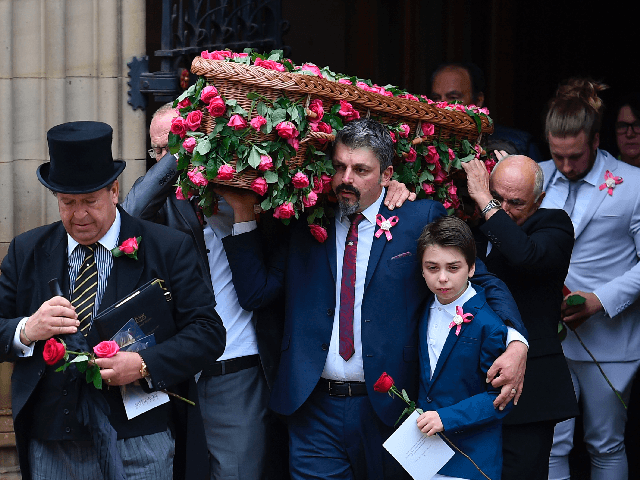8-year-old Saffie Rose Roussos, the youngest victim of the jihadist terror bombing of an Ariana Grande concert in Manchester, England, could have survived with better care, according to medical experts.
Distressing details of the aftermath of the 2017 radical Islamic terror attack reveal that Saffie was not killed instantly when suicide bomber Salman Abedi, who had been ferried to Britain from Libya by the Royal Navy in 2014, triggered his bomb, as was previously believed, but remained conscious for over an hour, and may have survived her injuries if she had received adequate medical attention.
“She could have been saved,” said Saffie’s father, Andrew Roussos, in comments to the BBC.
“How do we carry on living with this information? How can we carry on breathing with this information?” he asked.
“I can’t look at Saffie’s picture. Since I’ve read this report, I can’t look at her.”
The expert report, commissioned by lawyers representing the Roussos family, found that Saffie was agitated, called for her mother, struggled with her oxygen mask, and asked paramedics “am I going to die?” as she transported to hospital with severe injuries to her legs.
However, neither the ambulance crew nor the accident and emergency (A&E) department at the hospital applied tourniquets or splints to stem the bleeding, and trauma doctors did not perform a “thoracotomy” procedure to help with the blood loss for reasons which are unclear.
“Our medical experts have suggested that there were procedures that Saffie could have had and she didn’t. She was losing that much blood. And there wasn’t a successful procedure in place to get that blood into Saffie – even in A&E. Why?” demanded Mr Roussos.
Salman Abedi was flagged by the MI5 intelligence agency 18 times over a seven-year period prior to his attack, with multiple opportunities to stop him potentially being missed.
Local law enforcement and security also missed chances to stop Abedi on the night of the attack, with police officers not present when he walked into Manchester Arena due to an unauthorised two-hour break, and security who had a “bad feeling” about the terrorist refusing to heed members of the public who repeatedly urged them to approach him as he performed Islamic prayers with a giant rucksack, because they were “scared” they would be called “racist”.
“Yeah, yeah, we’ve seen him, he’s fine,” one witness was told 15 minutes before he launched his attack, leaving 22 dead and hundreds injured.
Abedi’s brother Hashem was found equally culpable for the killings and sentenced to a minimum of 55 years in prison in 2020. He is due back in court this year after being accused of two attacks on prison officers and an emergency worker, alongside two other convicted terrorists.
The Abedi brothers’ father, who came to Britain from Libya as a refugee but has now returned to the North African country, is still wanted by the police, due to his fingerprints being found in a vehicle used to store explosives used in his sons’ attack.

COMMENTS
Please let us know if you're having issues with commenting.